Family reunited after a decade – now a Trump clampdown could tear them apart
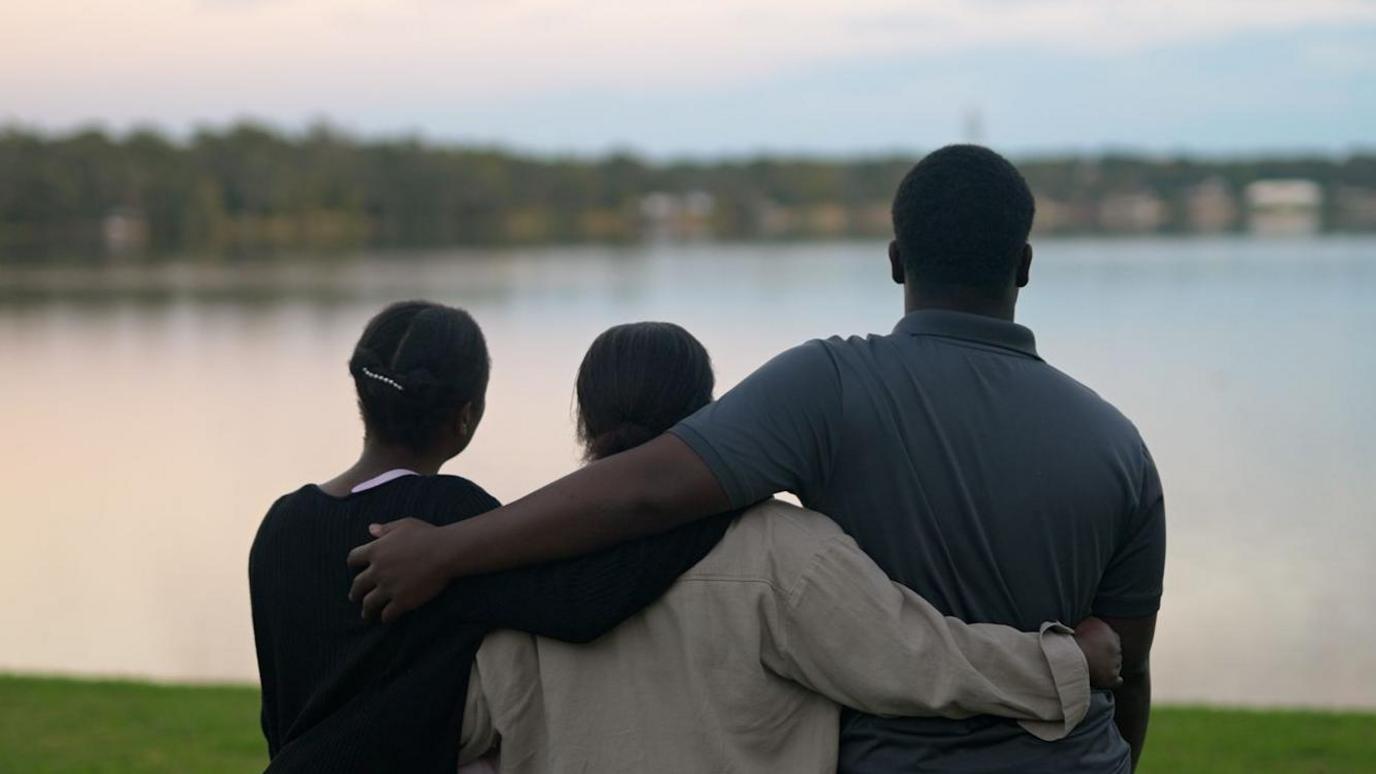
Marven says his life feels "more complete" now he has got to know Rochelle and Guerline
- Published
In a waterside house in the town of Lakeland, Florida, Marven laughs with two women he loves dearly - his sister Rochelle and their biological mother, Guerline.
The warmth between them is unmistakable as they celebrate his 16th birthday, even though they spent a decade apart. Now they fear being separated again.
Also celebrating is Stacey Nageli Angulo, who adopted Marven when he was three years old, from Haiti, in the wake of a devastating earthquake in 2010.
She helped Guerline and Rochelle come to the US three years ago, reuniting the family, as spreading gang violence triggered a fresh humanitarian crisis in the Caribbean island nation.
The two Haitian women, whose names we have changed for their safety, live and work legally in the US under a scheme called Temporary Protected Status (TPS). It provides protection for people already in the US who are from countries hit by war or natural disaster.
But TPS is due to end for 350,000 Haitians in February, as part of US President Donald Trump's sweeping changes to immigration policies.
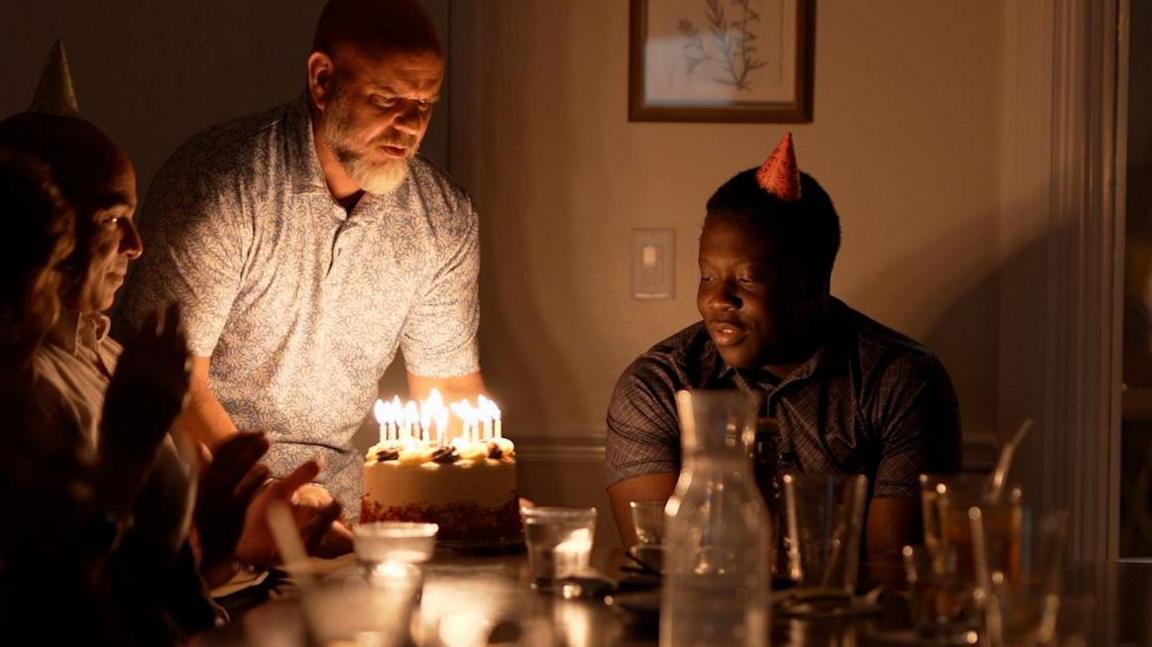
Marven turned 16 recently, about three years after being reunited with his biological mother and sister
Rochelle, now aged 21, cheers, as Marven blows out his candles, but Guerline's smile falters. In just a few months, the two women could be deported.
After the earthquake, Guerline lived in Haiti's capital Port-au-Prince, struggling to provide for her children. She says offering Marven for adoption "scarred" her, but she "wanted a better life for him".
Stacey, who now renovates properties after a career in the corporate world, says she felt compelled to adopt a child from Haiti in the aftermath of the disaster and raised Marven alongside her two biological children.
More recently, hearing about the violence, she began researching legal routes to the US for Rochelle and Guerline. When a humanitarian scheme opened in 2023, they applied immediately. "Three weeks later they were approved and on an airplane and here with us," she says.
The two Haitian women moved into a caravan on Stacey's driveway, before renting an apartment locally. Guerline now works in a hotel. Rochelle has jobs at a supermarket and a nursery, and dreams of becoming a nurse.
Marven often sleeps over at their apartment and loves the Haitian food Guerline cooks. He says his life now "feels more complete".
But Rochelle and Guerline are terrified of returning to Haiti. The gang violence has displaced a tenth of the population, according to the UN, with kidnappings and killings rising sharply. Rape and arson are rampant.
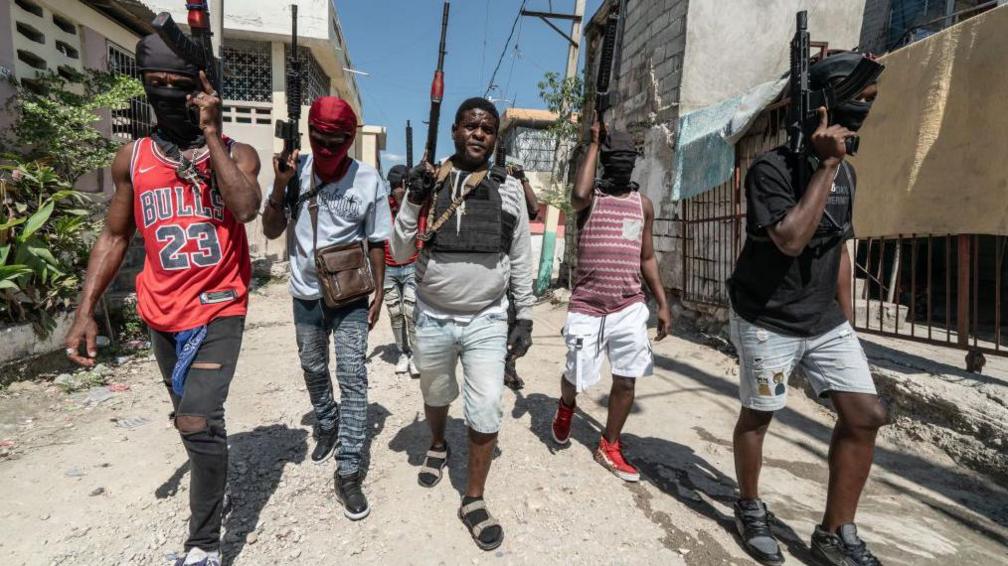
Gangs control much of Haiti's capital - Jimmy "Barbecue" Cherizier (centre), seen here in 2024, leads one of them
Rochelle, now 21, says her biggest fear in Port-au-Prince was being kidnapped. "I was at school and I've seen young girls like me get kidnapped," she says. "They asked a ransom for them and then they didn't get them back," she says, adding that she believes some girls who are taken are either raped or killed.
She says she receives harrowing videos from friends and relatives in Haiti every day, including bodies being burned and gang shootouts: "There's gun fighting all the time. You can't really go out."
Stacey voted for President Trump in the past three presidential elections but is now horrified that Rochelle and Guerline could be sent back.
"Do we want open borders? Absolutely not. Do we want criminals deported? Absolutely," she says. "But to rip families apart like ours and deport people to countries where it's absolutely unsafe… is unthinkable and unconscionable."
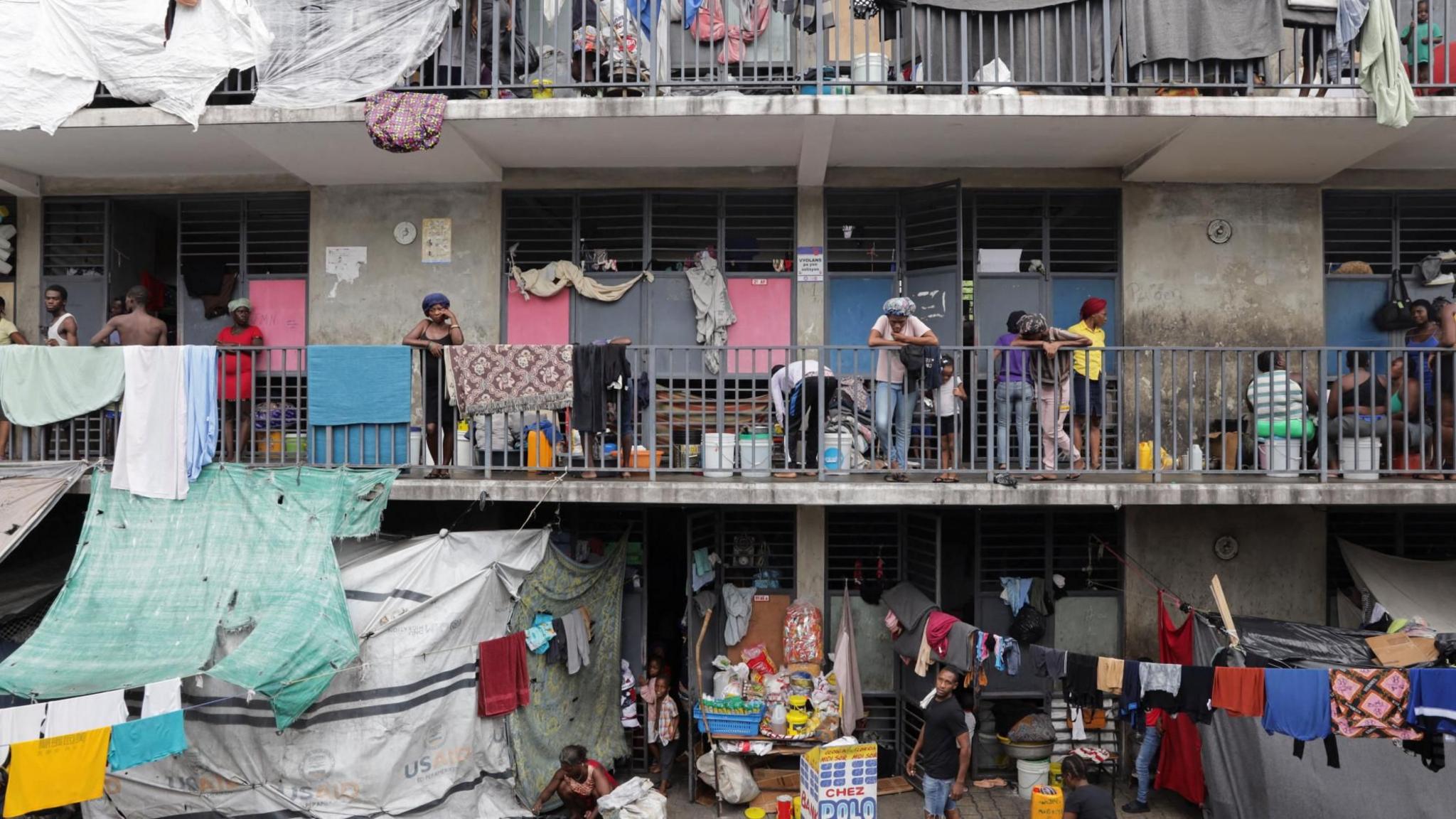
Many of Haiti's 1.4m displaced people have moved into temporary shelters in schools and other buildings
TPS for Haitians has been extended repeatedly since it was first designated in 2010.
But now the US Department for Homeland Security (DHS) says "the environmental situation in Haiti has improved enough that it is safe for Haitian citizens to return home".
The US government, however, advises its citizens not to travel there, because of "kidnapping, crime, terrorist activity, civil unrest".
The US immigration service says continuing the scheme for Haitians is not in US interests, citing difficulties vetting migrants and obtaining information from Haitian law enforcement agencies, coupled with the "serious threat posed by Haitian gangs".
A spokesman for the DHS also told the BBC in September that TPS had been abused and exploited.
The US administration says those whose TPS ends can leave voluntarily or pursue other immigration options. Lawyers say few will qualify to stay, and many will go underground.
In Miami, another Haitian woman, who we are calling Monique, tells us she has lived in the US for more than 16 years. Her small home is lined with photos of her husband, son and daughter. She is the only one of them facing deportation - her husband is a permanent resident, her daughter is a US citizen and her son has a green card application in progress.
Monique, who now works as a bus driver, came legally under a humanitarian programme before moving on to TPS in 2010.
"Yes, it's called Temporary Protected Status," she says. "But it's temporary if your home is safe. Haiti is not safe."
She wipes away tears, convinced she will lose everything and possibly die if she returns: "Don't send us to Haiti… just kill us."
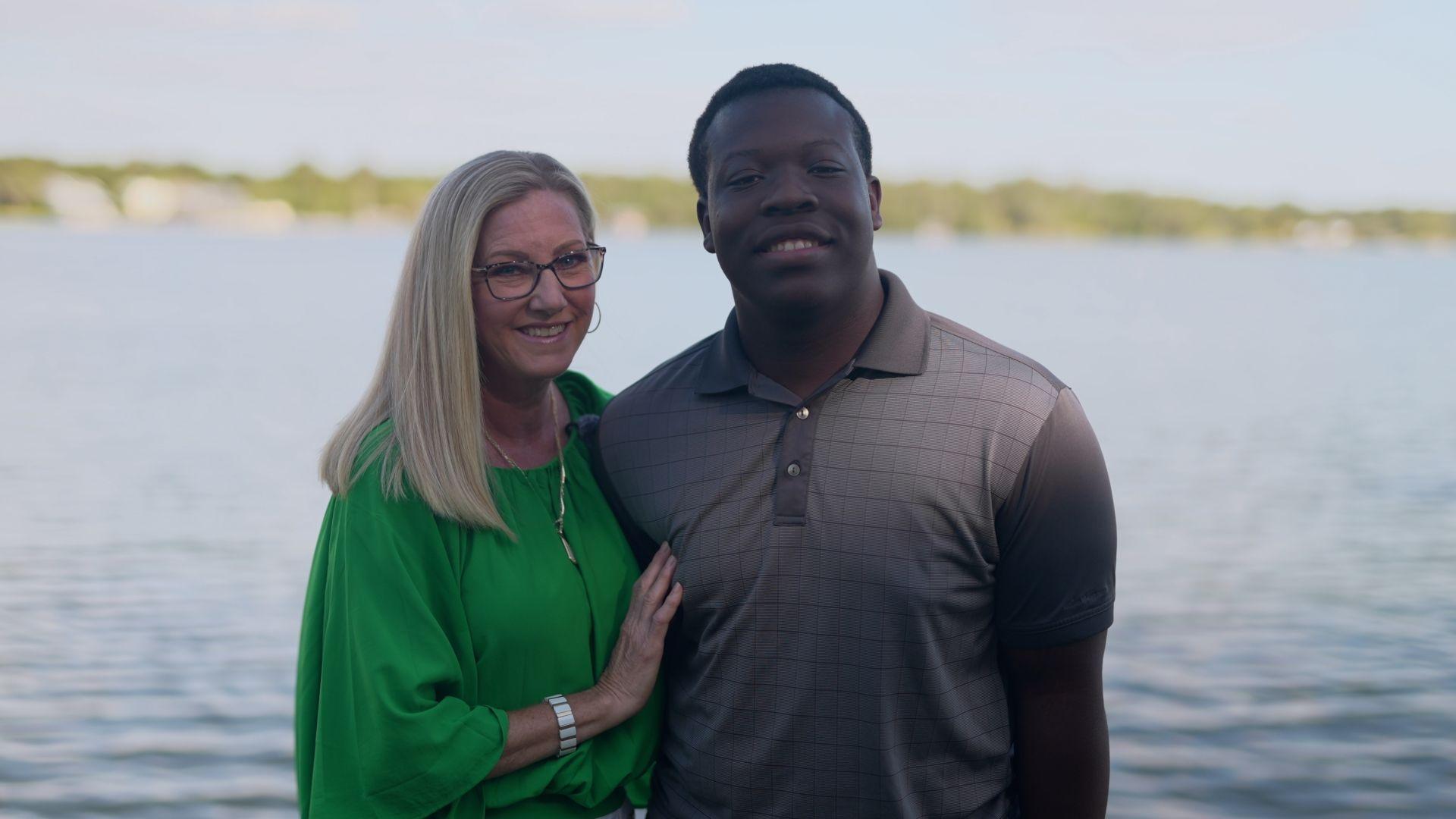
Stacey says she felt compelled to adopt a child in the aftermath of the 2010 earthquake in Haiti
Over a million people hold TPS in the US, with people from 20 countries granted the protection since 1990.
This year, the US has ended it for six countries - Afghanistan, Cameroon, Honduras, Nepal, Nicaragua and Venezuela. There have been multiple legal challenges, including one which delayed the end of TPS for Haitians.
In Florida, where 56% of voters backed Donald Trump, many Republican supporters, like Stacey, told us they wanted to see immigration law enforced but were concerned about the human cost of current policies.
She feels the Republican Party is "completely out of touch" with its voter base on immigration.
Local businessman Sam Romain, who is the chair of Polk County Republicans, however, is less sympathetic: "You knew that it was temporary, you built your life on a temporary status and now… you're upset it's expiring. We knew what the rules were."
When pressed on the situation in Haiti, he says he is not qualified to assess whether it is safe enough to return to, but believes the decision is made by qualified officials and he trusts their judgement.
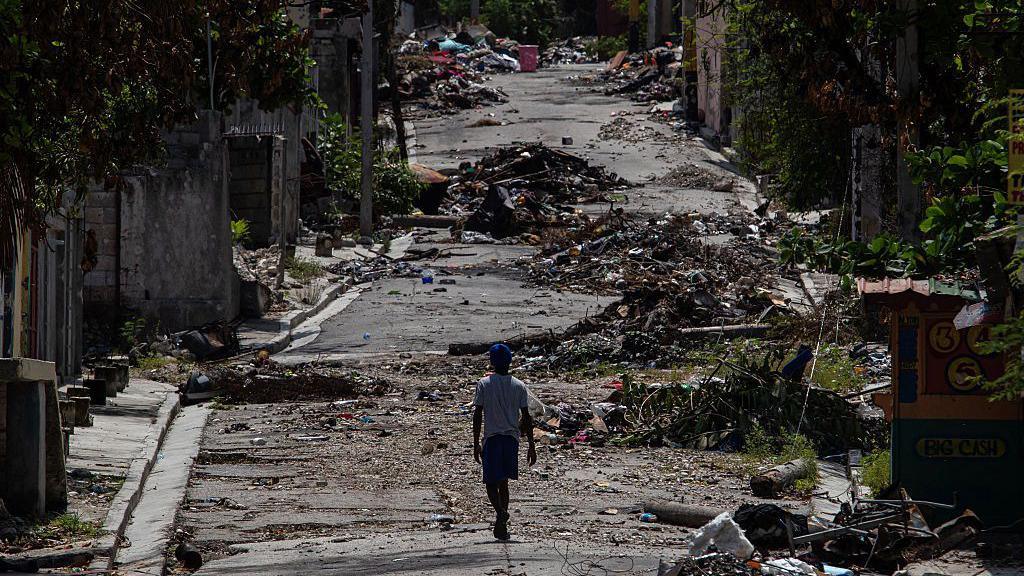
Whole neighbourhoods have been attacked and destroyed in Port-au-Prince
Mr Romain says he believes in America as "a nation of law and order" and adds that immigration reform "does need to happen".
For Rochelle and Guerline, the future is filled with uncertainty.
"We were told America is the land of freedom and safety," says Rochelle. "Now I don't know where we belong."
"I love my sister very much," says Marven. "I don't know what I'd do if anything happened to her."
The three pose together for a photograph - mother, son, and daughter. But in a few months' time, two of them could be gone.